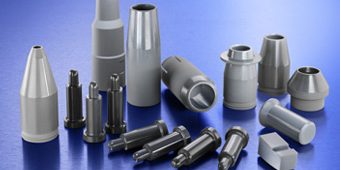This conference has been withdrawn from the 2020 conference schedule. As you are aware, coronavirus is having a global impact, and the World Health Organization and the Centers for Disease Control have instituted recommendations that include social distancing and cancelling conferences and large gatherings. Since safety of our attendees is always GRC’s highest priority, the GRC Board of Trustees has decided to withdraw this conference, and it will be rescheduled for 2022. This decision was made out of an abundance of caution and to alleviate the concerns of our conference communities scheduled to meet in this timeframe.
Many of the most interesting and technologically-relevant properties of ceramics derive from coupled phenomena (mechanical, thermal, chemical, electrical, magnetic, and optical) that originate at the atomistic- and nanometer-length scales – the complex behavior of ceramics under extreme conditions and/or away from equilibrium leads, on the one hand, to challenges in deciphering behavioral mechanisms, and on the other, opportunities to create ceramics with unprecedented properties. A wide variety of experimental and theoretical tools have recently emerged to reveal multiphysical, multiscale mechanisms that govern material behavior during processing and service. These specifically include the emergence of data driven atomistic and mesocontinuum computational modeling approaches, novel in situ experiments, and measurements under extreme conditions.
This conference is the latest in the series of highly successful GRCs on Solid State Studies in Ceramics that started in 1954. It examines the above issues in structural and functional ceramics. Topics include, among others, additive manufacturing, the behavior of hierarchical materials, understanding thermal-mechanical response under extreme conditions, in situ experiments (including transmission electron microscopy), coupled phenomena during processing and service, and fundamental studies in perovskites.
Participants in the conference will experience a stimulating and diverse environment in which they can discuss the forefront of ceramics science and engineering. Students and young professionals will enjoy opportunities to interact with experts in the field during the oral presentations (by invitation only) as well as the poster sessions (all participants are encouraged to submit). The discussion sessions will be structured to identify both challenges and opportunities in the discipline. A Power Hour will be organized to promote the inclusion and professional development of women and underrepresented minorities in ceramics research. The accompanying Gordon Research Seminar (GRS) offers additional career development and networking opportunities for students and young researchers.


